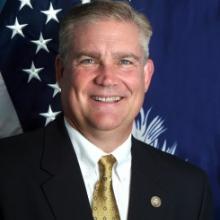Election 2014
While much of the country was receiving election returns and news of a red tide sweeping across the nation, here in Oregon we have more of a white, black, and brown problem.
One way to look at Oregon was that the “progressive” blues all won — our Democratic incumbents were all re-elected for U.S. Congress and governor, and statewide measures to legalize the sale and use of recreational marijuana sailed to an easy victory.
So, from a distance it looks like the dream of the Bill Clinton 90s is still alive in Portland.
I’ve been here more than a year now, planting a church and beginning to work with neighborhood partners, and have come to realize that the dream for truly “progressive” values — like immigration reform and bridging the gap in ever increasing income inequalities — is more like a bad dream that won’t go away.
This time it’s the Catholic sisters versus the Koch brothers.
That’s one way to look at the upcoming “Nuns on the Bus” tour, which hits the road Sept. 17 for the third time in three years, a monthlong trip though 10 key U.S. Senate battleground states to campaign against the influence of outside money on politics.
The issue has come to be identified with the wealthy industrialist brothers Charles and David Koch, whose huge contributions to conservative political causes have raised concerns about the role of “dark money” on elections.
The spigot for such undisclosed donations, which can be made by unions as well as corporations, was opened by the controversial 2010 Citizens United Supreme Court decision. That was followed by another 5-4 ruling in April of this year, McCutcheon v. Federal Election Commission.
The Republican National Committee on Friday launched its first web-based effort to rally conservative believers behind the party, a sign of how crucial voter turnout will be in this fall’s close-fought midterm elections and an indication that the GOP cannot take its evangelical Christian base for granted.
“This shouldn’t be outreach, this should be who we are — it is who we are,” said Chad Connelly, director of faith engagement for the Republican National Committee and the force behind this new initiative, GOPfaith.com.
Evangelicals, Connelly said, “are our biggest, most reliable voting bloc.”
The problem, however, is that even though evangelicals identify more closely than ever with the GOP, they have not been turning out at the polls in sufficient numbers to carry Republican candidates to victory.


